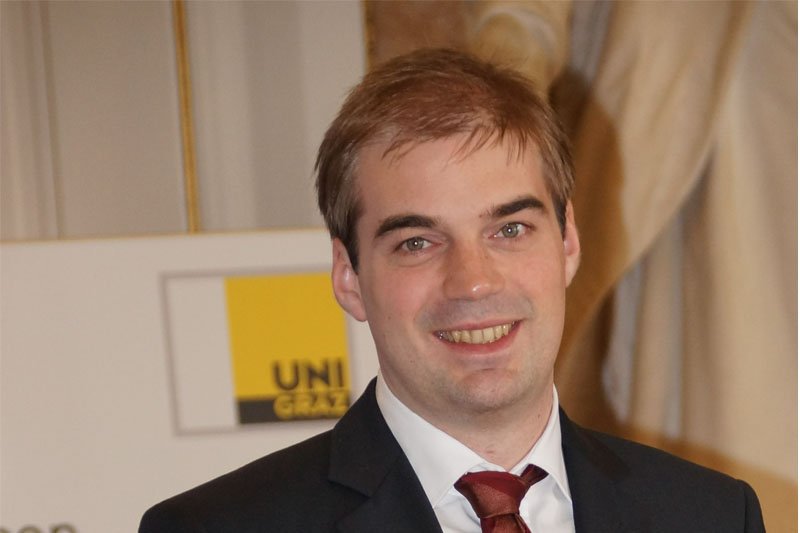Dr. Stefan Hofmeister was awarded two prizes for his dissertation "On the properties of solar coronal holes, their magnetic structure, and how their location on the Sun affects the solar wind velocities near Earth": the PhD Thesis Prize of the European Solar Physics Division of the European Physical Society (EPS) and the Award of Excellence 2020 of the Federal Ministry of Education, Science and Research. The dissertation was conducted at the Institute of Geophysics, Astrophysics, and Meteorology of the Institute of Physics of the University of Graz under the supervision of Univ.-Prof. Astrid Veronig. His work was supported by the JungforscherInnenfonds der Steiermärkischen Sparkassen. In addition, a Marietta-Blau Scholarship from the Austrian Exchange Service allowed him to work with international experts in Germany, Belgium, and Denmark for ten months during his dissertation.
In his work, Stefan Hofmeister investigated the relationship between coronal holes on the Sun and the speed of high-speed solar wind streams near Earth. Coronal holes denote large-scale structures with reduced density and temperature in the solar corona, the million-degree outermost layer of our sun. Coronal holes have an "open" magnetic field topology, i.e., the magnetic field closes only far in interplanetary space. Along these open magnetic field lines, solar plasma is accelerated to supersonic speeds of up to 800 km/s, forming the so-called high-speed solar wind streams. These spread throughout the entire interplanetary space. When they hit the Earth's atmosphere, they can trigger geomagnetic storms. By analyzing high-resolution observations from NASA's Solar Dynamics Observatory (SDO) satellite and the Hinode satellite of the Japanese space agency, Stefan Hofmeister found that the magnetic field in coronal holes is composed of bundles of small-scale magnetic elements, which cover only about 4% of the coronal hole’s area. Magnetic elements with lifetimes of less than 40 hours mostly occur with positive and negative polarity at the same rate, which identifies them as the footpoints of magnetic loops. By contrast, all magnetic elements with lifetimes of more than 40 hours have the same polarity, which places them as the footpoints of the "open" magnetic field lines of the coronal holes. Also, Stefan Hofmeister's studies have shown that the solar wind speed near Earth depends on both the coronal hole’s area and position on the Sun. The larger a coronal hole and the closer it is to the ecliptic, the higher the solar wind speed measured near Earth and the stronger the associated geomagnetic effects. These results will be used in the future to improve the prediction of geomagnetic storms.
In October 2020, Stefan Hofmeister began a post-doc career at the renowned Columbia University in New York (USA). Using spectroscopic measurements and the new data from the revolutionary Parker Solar Probe Mission, he is on the trail of further mysteries of the solar wind.
